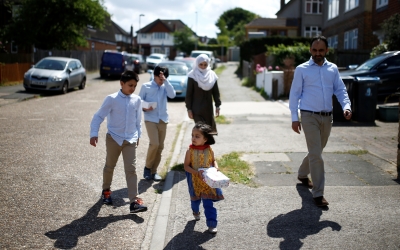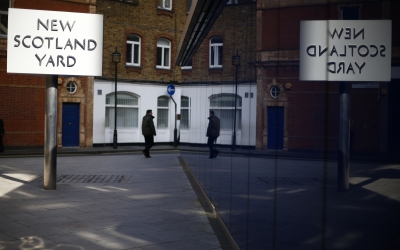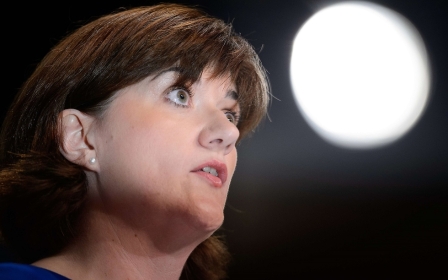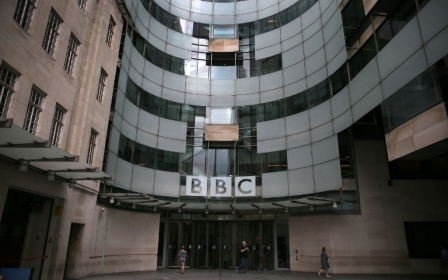UK minister Gove launched 'Trojan Horse' inquiry despite being told letter was bogus
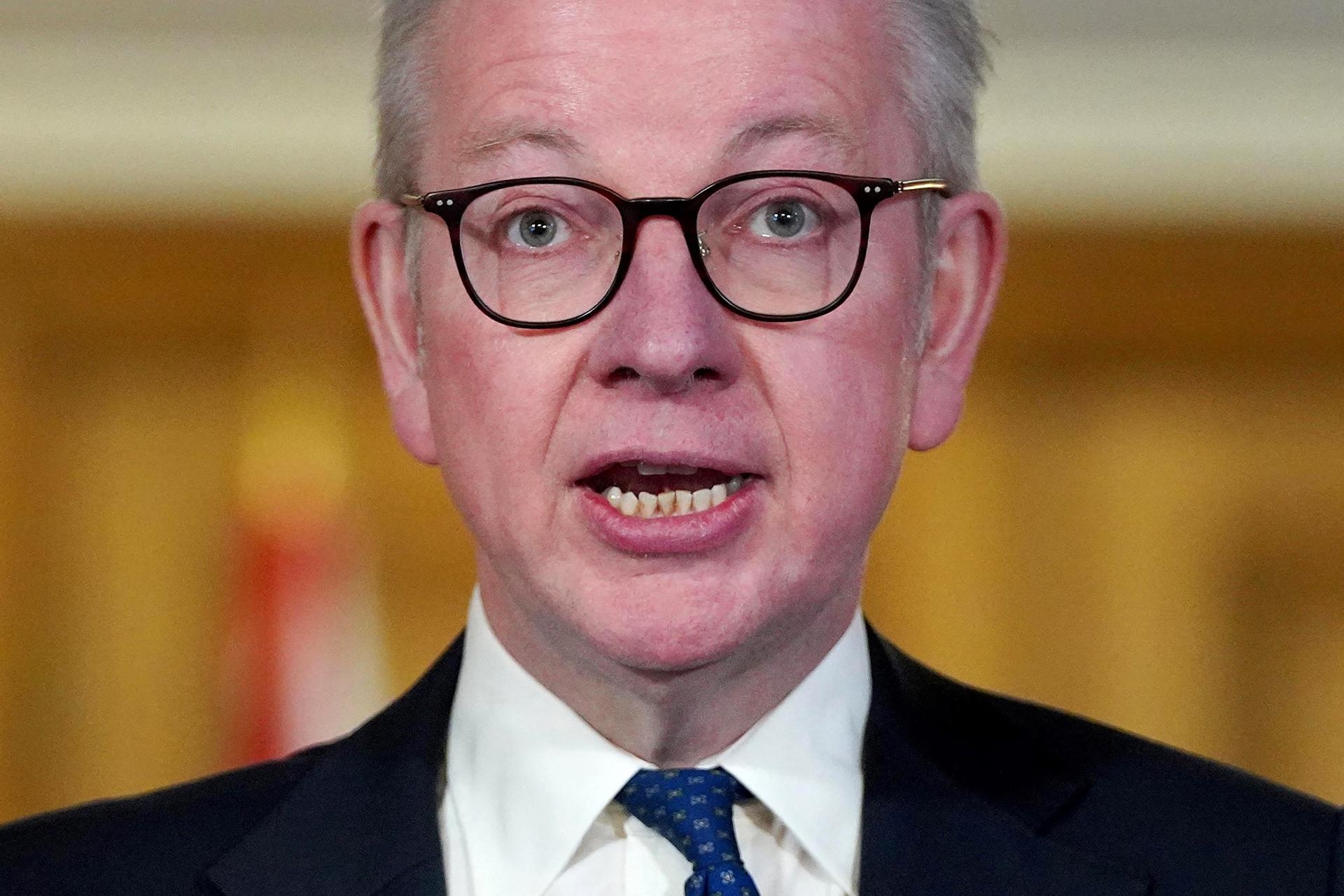
UK government minister Michael Gove launched an inquiry conducted by a former counter-terrorism police chief into claims of an Islamist plot to take over schools in Birmingham weeks after being briefed that a letter describing details of the so-called Trojan Horse affair was bogus, a new investigation has revealed.
The allegation that Conservative Party politician Gove, who was then education secretary, initiated the inquiry despite having been told that the letter lacked credibility is made in a podcast series, The Trojan Horse Affair, which was launched by Serial Productions and the New York Times on Thursday.
The series follows journalists Brian Reed and Hamza Syed as they set out to identify the author of the anonymous letter, which triggered a media frenzy in 2014 and shaped the government’s counter-extremism policy.
But the pair’s discoveries over four years of “a dizzying, farcical and enraging investigation” also raise questions about the response of public officials who ordered investigations of their own into the alleged plot.
Gove, the podcast series reports, appointed Peter Clarke, a former head of the Metropolitan Police’s Counter Terrorism Command, to investigate the plot after being briefed by Birmingham City Council officials that police had determined the letter was bogus.
The series also explores how Birmingham City Council officials had appeared to overlook possible links - described in the podcast as a “blindspot” - between the letter and an employment dispute at a local primary school, and had retracted an audit report linked to that case.
Commenting on new details uncovered by the series, John Holmwood, an expert witness in professional misconduct hearings brought against teachers caught up in the affair and the co-author of a seminal book examining the Trojan Horse hoax, called for a fresh inquiry into how officials in Birmingham and London had handled the case.
"In the interest of teachers falsely accused of misconduct and of a community falsely accused of 'un-British' values, there must be an urgent inquiry into the handling of the matter by the Department for Education and Birmingham City Council," Holmwood told Middle East Eye.
Anonymous letter
The Trojan Horse letter was sent anonymously to the head of Birmingham City Council in November 2013 and made national headlines for months after being leaked to journalists in early 2014.
The four-page document appeared to outline plans, dubbed “Operation Trojan Horse”, for the takeover and running of schools according to conservative Islamic principles in predominantly Muslim areas of Birmingham.
The opening and closing pages, along with the names of the people writing and receiving the letter, are missing. Neither the author of the letter, nor the person who sent the letter to Birmingham City Council, have ever been identified.
'The police recommendation including the counterterrorism unit is that the letter was bogus'
- Birmingham City Council official
The letter describes tactics such as exerting influence through school governing bodies and stirring up complaints by “Salafi parents” and staff in order to undermine and force out headteachers, and names schools as examples where these tactics are purported to have been successful.
After details of the letter were leaked to the media, both Birmingham City Council and the Department for Education launched investigations into the alleged plot.
Neither investigation was tasked with identifying the author of the letter or establishing whether it was genuine.
According to the podcast, officials and police had by then determined that the letter was a hoax. It cites notes obtained by the reporters, which were taken by a Birmingham City Council official at a meeting with Gove at the Department for Education in February 2014.
“The police recommendation including the counterterrorism unit is that the letter was bogus,” the notes said.
“There is a serious credibility gap. The document contains serious factual inaccuracies and, in a number of areas, contradictions.”
'Commander-in-chief'
The podcast raises questions about Gove’s role in ordering Clarke’s inquiry, quoting from a 2014 opinion piece for Middle East Eye by Peter Oborne in which Gove is described as “the unsung commander-in-chief of the Islamophobes inside the Conservative Party”.
It notes that Celsius 7/7, a book written by former journalist Gove in the aftermath of the 7 July 2005 al-Qaeda bombings in London about the perceived threat of Islamism in the UK, had influenced counter-extremism policy-making after the Conservative-led coalition government came to power in 2010.
The book was branded a "confused epic of simplistic incomprehension" by the author William Dalrymple and deemed "remarkably trite" by the Guardian, but was positively received by much of the British media.
“By the time the Trojan Horse letter came around Michael Gove had spent years and a lot of political currency investing in this worldview,” the New York Times podcast reporters note.
Gove remains a significant figure within the ruling Conservative party and is currently the Secretary of State for Levelling Up, Housing and Communities. His responsibilities include “supporting our community and faith groups”, according to the department website.
The podcast also takes aim at the report subsequently produced by Clarke.
Though Clarke said there was no evidence of an organised plot, he concluded there had been "co-ordinated, deliberate and sustained" attempts "by a number of associated individuals, to introduce an intolerant and aggressive Islamic ethos" in a few schools in Birmingham.
But the podcast cites a number of examples in the report of allegedly concerning behaviour and practices in schools which appear to be based on hearsay and unsubstantiated testimonies.
“This is the problem with the Clarke report: he provides no clear sourcing or verification for the vast majority of his allegations. There are scant facts, or figures, or footnotes, or context,” the reporters say.
According to the podcast, Clarke’s report “rather than clarifying the letter was a fake, the plot unevidenced, spun a web of legitimacy around the letter and the plot”.
MEE sought comment from Clarke via Policy Exchange, a think tank where he is a senior fellow, but had not received a response at the time of publication.
The fabrication that shaped government policy
The Trojan Horse affair had a significant impact on government counter-terrorism policy. It was cited as evidence of “extremism in our institutions” when the Home Office rolled out an updated counter-extremism strategy in 2015.
In the same year, the Home Office introduced the Prevent Duty - a statutory duty placed on teachers and other public sector workers to “have due regard to the need to prevent people from being drawn into terrorism” - which has been criticised by rights groups as discriminatory against Muslims.
Under intense scrutiny after the Trojan Horse letter became public, many of the schools caught up in the affair were placed under new management, with governors and teachers dismissed or forced to step down from their roles.
But professional misconduct cases brought against a number of teachers accused over the plot were dropped in 2017 after government lawyers were found to have withheld hundreds of pages of documents during legal proceedings.
A spokesperson for the Department for Education defended the findings of Clarke's report, noting that he had not been tasked with establishing the author or authenticity of the letter.
The spokesperson said: "The ‘Trojan Horse’ investigation rightly focused on whether the events and behaviours that were alleged actually happened, and the findings have subsequently been confirmed by a number of independent reports.
"We continue to act to prevent extremism and intolerance from gaining a foothold in our schools, including the undermining of fundamental British values.”
A spokesperson for Birmingham City Council said: “It is important to remember that amid all the speculation, commentary and debate there were investigations to get to the heart of the matter by both BCC and Government. As a result we took steps to address any concerns raised and as a city we have moved on, while ensuring we learned from these experiences."
Middle East Eye propose une couverture et une analyse indépendantes et incomparables du Moyen-Orient, de l’Afrique du Nord et d’autres régions du monde. Pour en savoir plus sur la reprise de ce contenu et les frais qui s’appliquent, veuillez remplir ce formulaire [en anglais]. Pour en savoir plus sur MEE, cliquez ici [en anglais].



